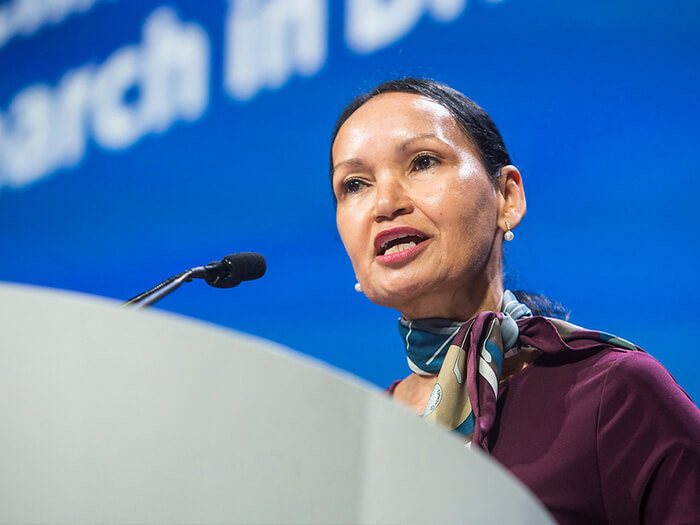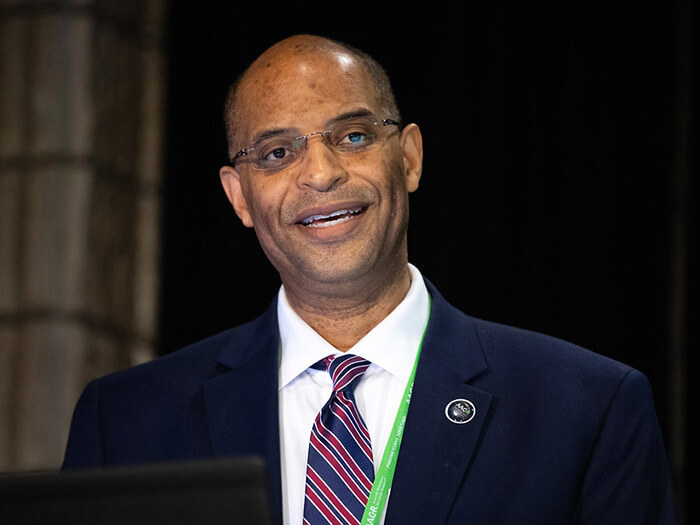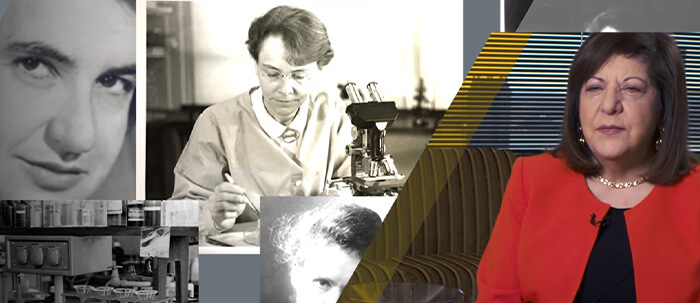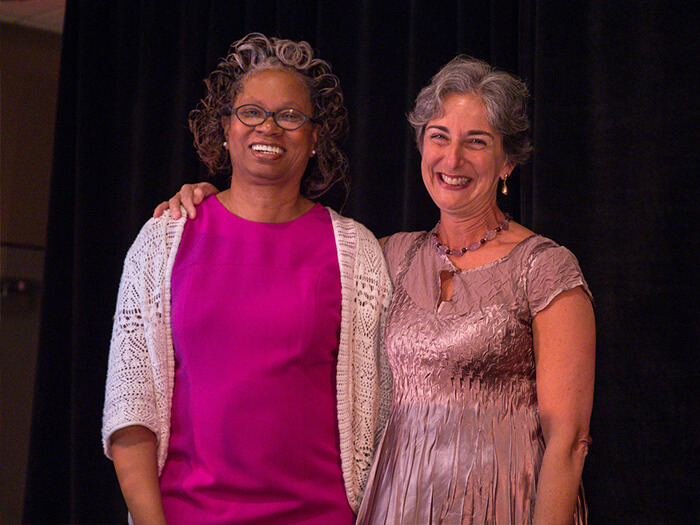Membership by the Numbers
From all sectors of the cancer community—and from across the spectrum of cancer science—the AACR is the catalyst for cancer prevention and cures. By communicating and collaborating through a range of programs and initiatives, the AACR’s 45,000 members in 126 countries around the world power progress for cancer patients.
MEMBERS BY CATEGORY

Active Members: Established laboratory researchers, physician-scientists, clinicians, and population scientists
Associate Members: Young laboratory scientists and physicians-in-training (graduate students, medical students and residents, and clinical and postdoctoral fellows)
Student Members: Undergraduate and high school students
Emeritus Members: Active members who have reached the age of 70 years
Affiliate Members: Other health care professionals (practicing oncologists, nurses, laboratory technicians, nonscientific corporate professionals, and patient advocates)
6,808
New members joined the AACR in 2019.
182
Nobel Laureates have been members of the AACR, including William G. Kaelin Jr., MD, FAACR, and Gregg L. Semenza, MD, PhD, who along with Sir Peter J. Ratcliffe, MD, FRS, were awarded the 2019 Nobel Prize in Physiology or Medicine in October 2019 for their discoveries of how cells sense and adapt to oxygen availability.
3,866
Individuals have been AACR members for more than 25 years.
160
Individuals have been AACR members for more than 50 years.
120
Countries are represented by AACR members.
260
Patient advocates are members of the AACR.
MEMBERS BY RACE/ETHNICITY

MEMBERS BY GENDER

MEMBERS BY WORK SETTING

AACR Membership: Diversifying the Cancer Workforce
Cancer touches everyone, and the population of cancer patients is a diverse one. Through its programs and initiatives, the AACR works to ensure that the cancer workforce is as diverse as the patients it serves. Through the efforts of three vital groups— Minorities in Cancer Research, Women in Cancer Research, and the Associate Member Council—the AACR provides training and mentorship to support talented scientists from populations that have been historically underrepresented in the scientific community.
Minorities in Cancer Research (MICR; 2019 Council Chair: Laura Fejerman, PhD)
MICR is a membership group within the AACR committed to preventing and curing cancer while meeting the professional needs and advancing the careers of minority scientists.
- 2019 MICR Council Chair-Elect John D. Carpten, PhD, also served as the Program Chair for the AACR Annual Meeting 2019—the first African-American AACR member appointed that position. Through his leadership of the Program Committee, the outstanding scientific program included the first plenary session focused entirely on cancer health disparities. Titled “Clinical and Translational Research in Diverse Populations” and chaired by Lisa Newman, MD, MPH (right), the plenary session convened investigators from North America, Asia, and Africa to discuss advances in characterizing the global burden of cancer as well as cancer disparities in America utilizing precision medicine and translational research tools.

- The AACR-MICR Jane Cooke Wright Memorial Lectureship highlights an outstanding scientist who has made meritorious contributions to the field of cancer research and who has, through leadership or by example, furthered the advancement of minority investigators in cancer research. The 2019 edition of the lectureship recognized John M. Carethers, MD (right), the C. Richard Boland distinguished university professor and John G. Searle professor and chair of the Department of Internal Medicine at the University of Michigan. Dr. Carethers presented his lecture, titled "A Role for Inflammation-induced DNA Mismatch Repair Deficits in Racial Outcomes from Advanced Colorectal Cancer," at the AACR Annual Meeting 2019.

Women in Cancer Research (WICR; 2019 Council Chair: Marcia Cruz-Correa, MD, PhD)
WICR is a membership group within the AACR committed to recognizing women’s scientific achievements and fostering their career development and advancement in cancer research.
- WICR marked its twentieth year as an AACR membership group in 2018, and the Annual Meeting 2019 was the culmination of a year of celebration. The AACR commemorated the milestone in several ways:
- A video celebrating WICR’s impact and the contributions of women to cancer research premiered during the opening ceremony.
- AACR Past-President Elizabeth M. Jaffee, MD, FAACR, AACR CEO Margaret Foti, PhD, MD (hc), and Elizabeth L Travis, PhD, delivered remarks at a special evening session celebrating the accomplishments of women scientists.
- WICR hosted its first-ever scientific symposium, titled “Advances in Genetics, Diagnosis, and Therapeutics among Common Cancers in Women.” Chaired by WICR Past Chair Lucile L. Adams-Campbell, PhD, the session featured lectures from AACR Past-President Nancy E. Davidson, MD, Edith A. Perez, MD, Marcia R. Cruz-Correa, MD, PhD, and Olufunmilayo I. Olopade, MD.

- The AACR-WICR Charlotte Friend Memorial Lectureship recognizes an outstanding investigator who has made meritorious contributions to the field of cancer research and who has, through leadership or example, furthered the advancement of women in science. The 2019 edition of the lectureship honored Jennifer Rubin Grandis, MD (far right), of the University of California, San Francisco. Dr. Grandis—who was recognized by WICR Council Past Chair Lucile L. Adams-Campbell, PhD (near right), presented her lecture, titled “Leveraging Biologic Insights to Prevent and Treat Head and Neck Cancer," at the AACR Annual Meeting 2019.

Associate Member Council (AMC; 2019 Council Chair: Robert T. Jones, BS)
AMC serves as the leadership body for AACR associate members, who consist of graduate students, medical students and residents, and clinical and postdoctoral fellows. The council develops programs that address the particular needs of early-career scientists.
The AACR is a Sustaining Member of the National Postdoctoral Association (NPA), which is dedicated to enhancing the quality of the postdoctoral experience for all participants. In September, the NPA organized National Postdoc Appreciation Week, which the AACR supported by organizing a series of AACR Cancer Careers Clinics in its home city of Philadelphia. During events held at the University of Pennsylvania, Drexel University, and Thomas Jefferson University, members of the AACR staff provided clinical and postdoctoral fellows with professional development advice on transitioning their careers, obtaining grants, getting their research published, and developing a curriculum vitae.